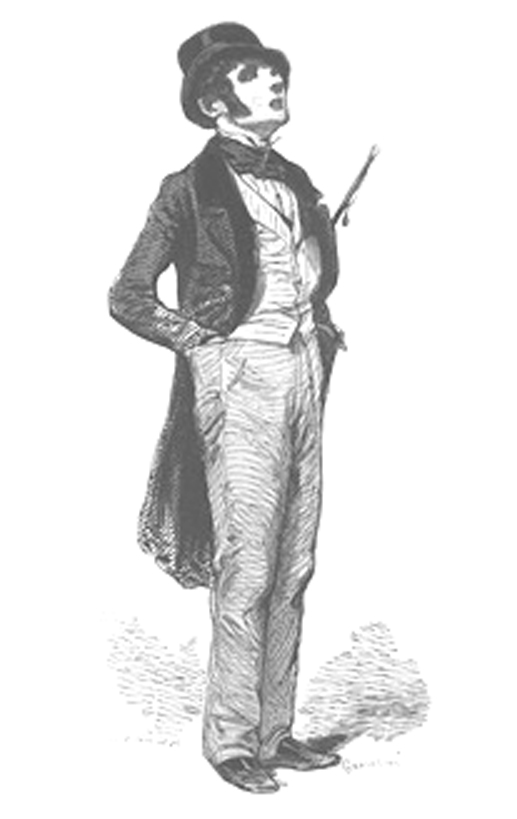
Paul Gavarni, Le Flâneur, 1842
The ‘Flâneur’/‘Flâneuse’ (‘roamer’ or ‘wanderer’) is a person who strolls the city in order to experience it, as a detached, gently cynical observer. (credit) There is an idleness attached to flânerie. The flâneur is a passive figure, they observe the dynamics of the city from a disengaged point of view. While the idea originated with Charles Baudelaire, it was Walter Benjamin who popularized it and connected it to the idea of escaping capitalist control. Benjamin helped define the flâneur as an observant solitary man perusing the city of Paris. Sometimes also referred to as a “dandy.” According to Merlin Coverley, the flâneur “is more playful for a start, it is also purely aesthetic, there is nothing revolutionary in its design, it doesn’t take itself too seriously in the sense of a political agenda.” [credit]
The Surrealist version of the flâneur was to devise experiments involving randomness and chance in order to experience the city without being blinded by mundanity. (credit) For example, follow interesting strangers across the city, or visit a city while guiding oneself using the map of another city, or draw a circle on a map and try to walk as accurately as possible along the circumference.
Similar in some ways to Guy Debord’s dérive later on, both flânerie and the dérive describe a figure seeking new experience and insight by defying the commercial logic of the modern city. (credit: The Art of Walking: A Field Guide, 2012). However the flâneur privileges the street over the studio, and treats walking as an aid to achieving the avant-garde dream of merging art and everyday life. (credit: The Art of Walking: A Field Guide, 2012) Debord explicitly takes position against letting chance take a too important role in a dérive, because ‘the action of chance is naturally conservative and in a new setting tends to reduce everything to habit or to an alternation between a limited number of variants. Progress means breaking through fields where chance holds sway by creating new conditions more favourable to our purposes.’ (credit)
Exercises:
Resources:
Blog post comparing flânerie to dérive